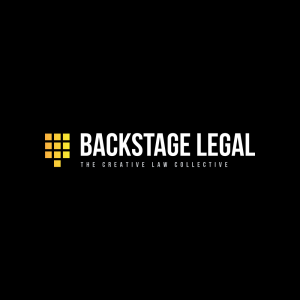When is the right moment to really think about taking the next step and take your business to the next level? All the time, would be my honest answer. However, now is as good a time as any to really upscale your services and to go from ‘a good option for the job’ to ‘the right candidate’ as a freelancer.
Below are three simple, yet effective advantages in which way professional legal documents can improve your negotiating position with companies and other freelancers alike.
1. A professional legal document gives a glimpse of your experience and expertise as a freelancer
Whether it’s something as simple as a quote or invoice, or a more extensive contract or even terms & conditions, your documents can reflect to some as much about your business as an attractive website does.
A quote should always state in a clear manner the services or products you’re offering to the potential client. However, there are many ways to achieve this. For example by either designing a nice template or using applications to do it for you. In the end, the result is what matters. And, to achieve this result it’s important to inform your client of your services and convince them to do business with you.
Presenting a document with a clear lay-out, a defined proposal and comprehensible terms generates trust with your clients: you know what you’re doing, why you’re doing it and here are the papers to show for it.
Contracts, terms & conditions, buy/sell orders, non-disclosure agreements and other legal documents all have the same beneficial effect on your job prospects: to prove that you have contemplated about your business and professionalized the way in which you provide services or offer products. In the end this can mean the difference between you and the competition when working in a crowded sector. Try to see it from the hiring company’s perspective; there shouldn’t be any doubt about a freelancer. If the paper work is below par, how will the rest be?

2. Working with legal templates speeds up the deal-making process
Establishing a common ground for the work to be done can be a tricky process. Especially if the project entails a novel or unique idea that both parties are not very familiar with.
Having a services agreement that outlines in a clear and comprehensible way the services you offer, what your fee is and how you perform your tasks is a great way to communicate to your client how you go about your business. Of course, adding a personal note is important to the business relationship and you shouldn’t send out just the contract without an accompanying letter as that can be seen as rude.
However, a document is more easily transferred between departments, especially in a more corporate setting, than an e-mail or worse, a WhatsApp conversation.
Additionally, by using templates you limit the framework of topics that need to be discussed between you and your client. The client is aware of all the aspects you deem relevant to your business and these points offer a basis for negotiation, leaving all the unaddressed matters to a minimum.
When presented with a good, complete offer, it’s easy to pick up your pen and put your signature on the document.
3. Convenience is key: having the arrangements in a contract provides clarity and security
The universally recognized feature that a contract offers has remained true throughout the ages: to ascertain that what has been written down needs to be adhered to by all parties to the agreement.
For a proper application in today’s market, a nuance is required though. The means should always serve its purpose and in a legal context a document should be in balance with its benefits. For a small job that can be done in a matter of minutes or a few hours, or a project with a small pay-out, going through the hassle of creating quotes and contracts can sometimes not be worth your time. There is a sliding scale in which you need to determine a basis of characteristics for yourself – such as risk, impact, length, size and other variables – whether it’s worthwhile to work with legal documents for a certain assignment.
In that regard, size does matter. Sending a 30-page booklet over to a client for a one-hour job can seem like overkill and in this case using a simple e-mail template with your terms and proposal would most likely get you better results.
Nonetheless, having all of the discussed and agreed upon topics archived in a place where it’s easy to revisit these provides the necessary security when things go awry or in case of an uncertainty. It’s much easier to provide backing to your statement when you have a document to show than trying to distil from a WhatsApp conversation or phone call what the intention of both parties was. In the worst case when things really go south, a contract is always favoured by the judge in court.

This article is written by mr. Dorian Andrzejewski. If you have any questions or remarks as a freelancer or hiring company, please drop him a line via the contact form below:
Error: Contact form not found.
freelancer contracts zzp


0 Comments Leave a comment